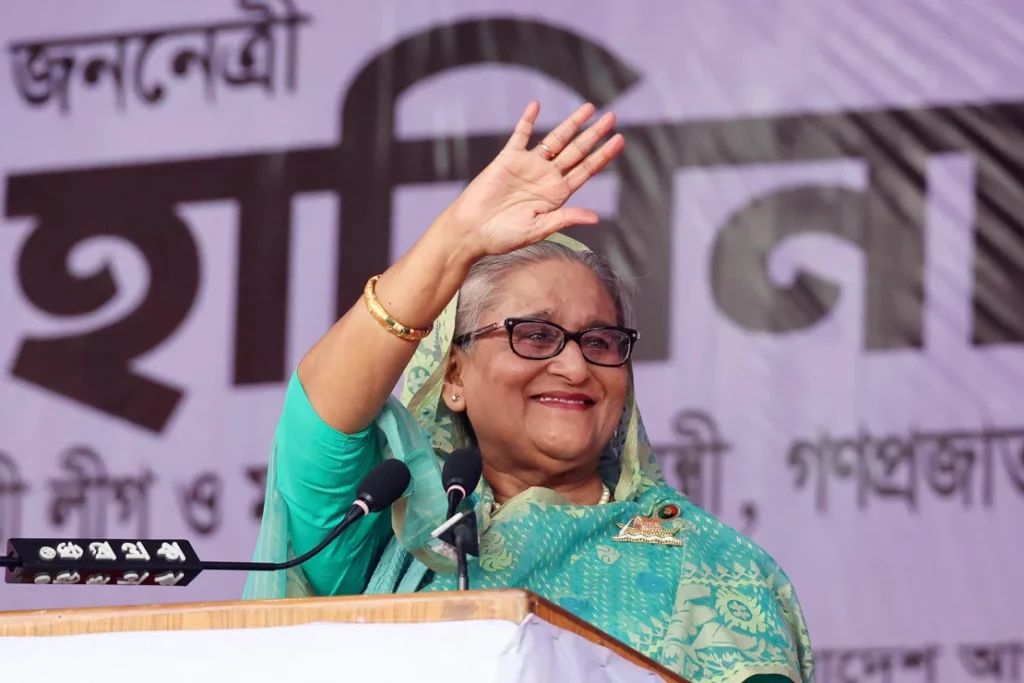Bangladesh will go to the polls on January 7. Of the 44 parties registered in the Election Commission, 27 are participating in the elections this time for 300 seats. This may create an impression that it will be a participatory, competitive and contested election. But, with the main Opposition parties, including the biggest Bangladesh Nationalist Party (BNP), boycotting the poll and many of their leaders jailed it will, in all likelihood, be a one-sided affair and the ruling Awami League is all set to be re-elected for a fourth straight parliamentary term. These parties say they have no faith that Prime Minister Sheikh Hasina will hold a free and fair election for which they have demanded the election be held under a neutral caretaker government. The Awami League has rejected the demand out right, calling it unconstitutional since an amendment passed a few years back scrapped the provision of election overseen by a caretaker government. The candidates who have filed their nominations are from the Awami League, its allies or independents.
In such a scenario the BNP has predictably asserted that “democracy is dead in Bangladesh” and the election is going to be “fake.”
This is rather a sweeping statement since the reality in Bangladesh is that the BNP has become alienated from a large number of people both due to the ailment of its leader Begum Khaleda Zia, who is serving jail term, and weak organisational strength. At the same time country-wide arrests of Opposition leaders and activists by a coercive police force have lent credence to the charge that Sheikh Hasina has increasingly turned autocratic. There is, however, no denying the fact that Bangladesh under Hasina has achieved, since 2009, a good measure of economic success while being once dubbed one of the world’s poorest countries. Now, it is one of the fastest-growing economies in the region, surpassing even its giant neighbour India. Its per capita income has tripled in the last decade and the World Bank estimates that more than 25 million people have been lifted out of poverty in the past two decades. One of the key achievements is the Hasina government’s huge infrastructure projects, including the flagship $2.9bn Padma bridge across the Ganges. The bridge alone is expected to raise GDP by 1.23 per cent. At the same time Bangladesh is still reeling under the impact of intensified cost of living crisis. Inflation was around 9.5 per cent in November, while its foreign exchange reserves have dropped from a record $48bn in August 2021 to around $20bn now – not enough for three months of imports. Its foreign debt has also doubled since 2016.
The US has asked the Sheikh Hasina government to make sure the Opposition takes part in the election that alone would legitimise the exercise. But, the government has made it clear that the country’s Election Commission is an independent body and the government should not be blamed for the Opposition’s boycott of the polls. A group of UN special rapporteurs have also expressed concern over the “weaponisation of the judicial system” to target Opposition activists, journalists, human rights defenders and civil society leaders. The government has categorically denied the charges.
India of course does not see eye to eye with the US assessment of the situation in Bangladesh and it has extended its support to the holding of the elections. This is only natural given the regional political dynamics as also the debatably democratic character displayed by the Indian government. Delhi wants road and river transport access for its seven north-eastern states through Bangladesh. India is also concerned about the “chicken’s neck,” a 20km land corridor that runs between Nepal, Bangladesh and Bhutan, linking its north-eastern states to the rest of India. Officials in Delhi are afraid it is strategically vulnerable in any potential conflict with India’s rival, China. Hasina has been a strong ally of India and helped the latter tackle the insurgency problem in the north-east by reining in militant groups operating along the border after coming to power in 2009. Moreover, India can ill afford to excessively arm twist Bangladesh which could push Dhaka towards China. Beijing is already keen on bringing Bangladesh into its orbit as it vies with India for regional supremacy.
Similar to Hasina’s example, India has also been consistently supporting the military dictatorship in neighbouring Myanmar (Burma). That government has lost complete public support and has, in the meanwhile, veered more towards China. In any eventuality if there is a change in Myanmar and somewhere down the line democracy returns to that country, New Delhi’s support for the Junta could prove counterproductive to Indian interests in the long run.
The way things are moving, there is hardly any fear of any upset election results. As long as Hasina is there, India has a steady, autocratic and trustworthy ally in her.
